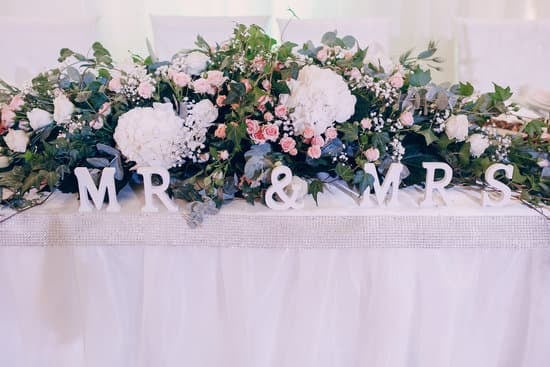A wedding is a significant ceremony that marks the union of two individuals in marriage. It is a joyous occasion celebrated in various cultures and traditions around the world, each with its own unique customs and rituals. In this article, we will explore the history of weddings, traditional and modern wedding trends, and offer guidance on navigating the challenges of planning this special event.
The institution of marriage and the accompanying wedding ceremonies have been an integral part of human society for centuries, symbolizing love, commitment, and the merging of families. From ancient rituals to modern-day celebrations, weddings hold deep cultural and emotional significance for people across the globe.
Throughout history, weddings have evolved alongside societal changes, reflecting shifts in beliefs, traditions, and customs. Today, weddings are not only a declaration of love but also an expression of personal style and creativity. From elaborate affairs to intimate gatherings, couples have endless options when it comes to planning their special day.
Join us as we delve into the fascinating world of weddings, exploring their diverse traditions and meaning in different cultures. Whether you are planning your own wedding or simply curious about global customs surrounding this momentous occasion, there is something for everyone in this comprehensive guide.
The History of Weddings
Origins of Wedding Ceremonies
The origins of wedding ceremonies can be traced back to ancient civilizations such as Mesopotamia, Egypt, and Rome. These early ceremonies were often steeped in tradition and symbolism, with rituals designed to signify the union of two individuals and their families. For example, the exchange of rings symbolized a couple’s commitment to each other, while ceremonies often included prayers or blessings from religious leaders.
Evolution of Wedding Traditions
As societies evolved, so did wedding traditions. The concept of marriage moved beyond a simple union between two individuals and became a legally binding contract. This led to the development of formal marriage ceremonies with witnesses and legal documentation. Over time, various cultures began incorporating unique customs and practices into their weddings, creating a diverse tapestry of rituals that continue to inspire modern wedding celebrations.
Influence of Modern Trends
With the rise of social media and global connectivity, modern weddings have become grander and more personalized than ever before. Couples are now incorporating elements from different cultures into their weddings or choosing non-traditional venues such as beaches or mountaintops for their special day. Furthermore, technological advancements have revolutionized the way weddings are planned and executed, allowing for more creativity and innovation in every aspect of the celebration.
Wedding Traditions Around the World
One of the most fascinating aspects of weddings is the diverse range of customs and rituals that are observed around the world. From elaborate ceremonies to unique traditions, different cultures have their own way of celebrating this special occasion.
For example, in India, a traditional Hindu wedding may include intricate henna designs on the bride’s hands and feet, as well as vibrant colors and ornate jewelry. In Japan, the Shinto wedding ceremony involves symbolic rituals such as drinking sake and exchanging nuptial cups.
Similarly, in Mexico, a traditional wedding may incorporate a lasso ceremony where a floral garland or rosary is placed around the couple to symbolize unity. These are just a few examples of how wedding traditions vary across different countries and cultures, showcasing the rich diversity of global matrimonial customs.
It’s not only the rituals themselves that differ but also the significance behind them. For instance, in some cultures, weddings are seen as a union not just between two individuals, but between two families or communities. Understanding these differences can help couples appreciate the depth and meaning behind each tradition and embrace them as part of their celebration.
| Country | Wedding Tradition |
|---|---|
| India | Intricate henna designs on bride’s hands and feet |
| Japan | Sake drinking and nuptial cup exchange in Shinto weddings |
| Mexico | Lasso ceremony with floral garland or rosary for unity |
Modern Wedding Trends
The concept of weddings has evolved drastically over the years, and this includes the trends associated with planning, themes, and decor. Today, weddings are becoming more personalized and unique to each couple’s taste, with a greater emphasis on creativity and individuality. From themed weddings to non-traditional venues, the modern wedding landscape has seen a significant shift from traditional norms.
One of the latest trends in wedding planning is the rise of eco-friendly or sustainable weddings. Couples are now opting for more environmentally conscious choices when it comes to their wedding details, such as using recycled paper for invitations, choosing local and seasonal flowers for bouquets, or sourcing food from sustainable vendors. This reflects a growing awareness of environmental issues and a desire to minimize the ecological footprint of the special day.
In terms of themes, there has been a surge in non-traditional and unconventional wedding concepts. Couples are moving away from cookie-cutter wedding designs and embracing themes that truly reflect their personalities or interests. Whether it’s a vintage-inspired celebration, a rustic barn wedding, or an urban chic affair in the heart of a city, couples are looking for ways to make their wedding stand out.
Additionally, modern couples are also incorporating technology into their weddings by creating personalized websites or using social media hashtags to document their big day. This allows guests to feel more engaged and connected throughout the event.
| Modern Wedding Trends | Trend Description |
|---|---|
| Eco-Friendly Weddings | Couples prioritize sustainability in their wedding details |
| Non-Traditional Themes | Moving away from traditional designs and embracing unique concepts that reflect personal style and interests |
| Technology Integration | Utilizing personalized websites and social media hashtags to enhance guest experience |
The Wedding Planning Process
Planning a wedding can be an exciting yet daunting task. From setting a budget to choosing the perfect venue and selecting vendors, there are many important factors to consider when planning a wedding. This section will provide a detailed guide to help couples navigate the wedding planning process successfully.
Setting a Budget
One of the first steps in planning a wedding is establishing a realistic budget. It’s essential to sit down with your partner and discuss how much you are willing and able to spend on the wedding. Consider factors such as the number of guests, the location, and any specific elements you want to include in your special day. Once you have determined your budget, it’s crucial to stick to it throughout the planning process.
Choosing a Venue
Selecting the right venue for your wedding is an important decision that can set the tone for the entire event. Whether you envision an outdoor garden ceremony or a grand ballroom reception, the venue should reflect your personal style and accommodate your guest list comfortably. When choosing a venue, consider factors such as location, capacity, amenities, and any restrictions or requirements they may have.
Selecting Vendors
From photographers and florists to caterers and entertainment, selecting reputable vendors is crucial in creating a memorable wedding experience. Research potential vendors carefully, read reviews, ask for recommendations, and schedule consultations before making any decisions. It’s important to communicate your vision clearly with each vendor and ensure that they understand your needs and preferences for the big day. Ultimately, choosing trustworthy and experienced vendors will help bring your wedding dreams to life seamlessly.
Wedding Etiquette
- Dress Code: One of the most important etiquette rules for wedding guests is to adhere to the specified dress code. Whether the invitation calls for black-tie, formal, or casual attire, it’s crucial to dress accordingly to show respect for the couple and the event. Additionally, guests should avoid wearing white or anything that might overshadow the bride and groom.
- Gift-Giving: When it comes to wedding gifts, it’s customary for guests to bring a present for the newlyweds. Common gifts include household items, cash or checks, or contributions to a honeymoon fund. It’s also customary for guests to send their gifts before the wedding date if they are unable to attend in person.
- RSVP Protocol: Responding promptly to a wedding invitation is considered good etiquette. Couples need an accurate headcount for their catering and seating arrangements, so guests should make every effort to RSVP by the specified date.
Navigating these etiquette rules can sometimes be challenging, but adhering to them ensures a seamless and respectful experience for everyone involved in what’s wedding celebrations around the world.
Wedding Fashion
When it comes to planning a wedding, one of the most exciting aspects is choosing the perfect attire for the bride and groom. From stunning bridal gowns to stylish groom suits, wedding fashion plays a crucial role in creating the overall look and feel of the big day. Here are some tips for finding the perfect wedding attire:
- Start early: It’s important to begin the search for wedding attire well in advance to allow time for fittings and any necessary alterations.
- Do your research: Take the time to explore different styles and trends in bridal and groom fashion. Consider factors such as the wedding theme, season, and venue when making your decision.
- Set a budget: Determine how much you’re willing to spend on wedding attire, including accessories such as veils, shoes, and jewelry.
For brides, there is an endless array of options when it comes to finding the perfect gown. From classic ballgowns to sleek mermaid silhouettes, bridal fashion is constantly evolving. On the other hand, grooms have increasingly been experimenting with non-traditional looks, from patterned suits to bold colored tuxedos. The key is to find attire that reflects your personal style while also fitting the overall theme of the wedding.
One important piece of advice when it comes to finding wedding attire is to prioritize comfort. Remember that you’ll be wearing these clothes for an entire day, so make sure they fit well and are easy to move in. Additionally, don’t forget about accessories such as jewelry, veils or headpieces for brides, and boutonnieres for grooms-these finishing touches can truly elevate your look on your special day.
Navigating Wedding Challenges
In conclusion, planning a wedding can be an exciting but also challenging process. From budget constraints to family disagreements, there are various obstacles that may arise during the wedding planning journey. However, by taking a proactive and organized approach, couples can overcome these challenges and create their dream wedding day.
One common challenge that couples face is managing the budget. The cost of weddings can quickly add up, so it’s essential to set a realistic budget from the beginning and stick to it. Being transparent about finances and prioritizing what aspects of the wedding are most important can help in making informed decisions about where to allocate resources.
Additionally, navigating family dynamics and managing guest expectations can also be a source of stress for many couples. It’s important to communicate openly with both sets of families and set boundaries when necessary.
Ultimately, the focus should be on creating a celebration that is meaningful and reflective of the couple’s love story. By staying organized, seeking support when needed, and keeping perspective on what truly matters, couples can navigate through any challenges that come their way as they plan for their special day.
Frequently Asked Questions
What Is the Definition of a Wedding?
A wedding is a ceremony in which two people come together to exchange vows and become legally bound to each other. It typically involves the exchange of rings, vows of commitment, and often includes religious or cultural traditions depending on the couple’s background.
What Is the Concept of Wedding?
The concept of a wedding is rooted in the idea of two individuals declaring their love and commitment to each other in front of their family, friends, and community. It symbolizes the beginning of a new chapter as a couple, often marked by celebrations and rituals that vary across different cultures and traditions.
What Is the Meaning Behind a Wedding?
The meaning behind a wedding is deeply personal for each couple, but generally it signifies the public declaration of love and commitment between two individuals. It also represents the merging of two families or communities, as well as the start of a lifelong partnership built on trust, respect, and mutual support. Ultimately, it’s a celebration of love and unity.

I have been involved in marriages for over 20 years helping couples and singles understand more about them.





